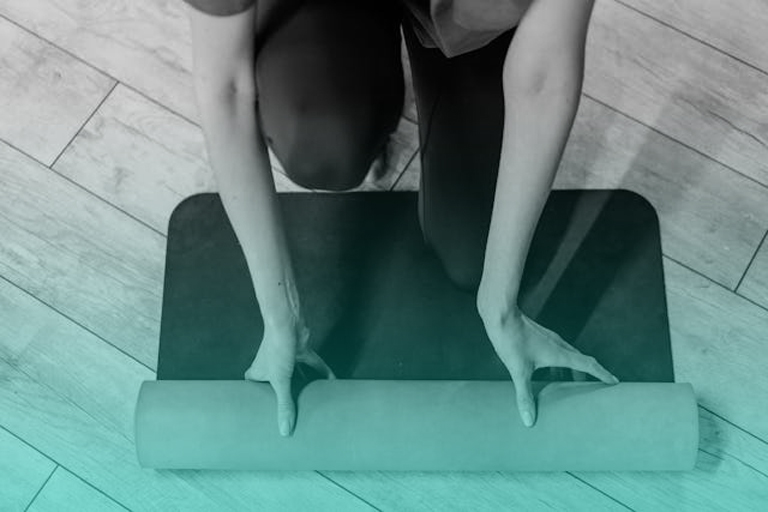The Ultimate Guide to Self Care Activities: Nurturing Your Mind, Body, and Soul

The Importance of Self-care
Self-care is essential for overall well-being because it helps prevent burnout and promotes self-awareness and self-compassion. In today's fast-paced world, we often neglect our own needs in favor of meeting the demands of work, family, and other obligations. However, neglecting self-care can lead to increased stress, decreased productivity, and even physical and mental health issues. By making self-care a priority, you are investing in your long-term health and happiness.Benefits of Self-Care Activities
Engaging in self-care activities has numerous benefits for your mind, body, and soul. For the mind, self-care can reduce stress, improve focus and concentration, and enhance overall mental well-being. Taking time for yourself and engaging in activities that bring you joy and relaxation can also boost your mood and increase feelings of happiness and contentment. Self-care activities for the body, such as exercise, proper nutrition, and adequate sleep, can improve physical health, increase energy levels, and enhance overall vitality. Lastly, self-care activities for the soul, such as meditation, spending time in nature, and practicing gratitude, can provide a sense of purpose, meaning, and connection to something greater than yourself.Types of Self-Care Activities for the Mind
- Meditation and mindfulness: Engaging in mindfulness practices can help calm the mind, reduce stress, and increase self-awareness. Whether it's a guided meditation, deep breathing exercises, or simply sitting in silence, incorporating mindfulness into your daily routine can have profound effects on your mental well-being.
- Journaling: Writing down your thoughts, feelings, and experiences can be a therapeutic and reflective practice. Journaling allows you to process emotions, gain clarity, and gain insights into yourself. It can also serve as a creative outlet for self-expression.
- Reading: Reading is not only a great source of knowledge but also an excellent form of relaxation and escapism. Whether you prefer fiction, non-fiction, or self-help books, losing yourself in a good book can transport you to different worlds and expand your horizons.
Ready to prioritize your mental well-being?
Types of Self-Care Activities for the Body
- Exercise: Engaging in regular physical activity is crucial for maintaining good physical health. Whether it's going for a run, practicing yoga, or lifting weights, finding an exercise routine that you enjoy and can stick to is key. Exercise not only improves cardiovascular health and strength but also releases endorphins, boosting mood and reducing stress.
- Eating nourishing foods: Fueling your body with nutritious foods is an essential aspect of self-care. Opting for whole foods, fruits, vegetables, and lean proteins can provide your body with the necessary nutrients for optimal functioning. Eating well-balanced meals can increase energy levels, improve digestion, and support overall well-being.
- Getting enough sleep: Sleep is vital for physical and mental restoration. Prioritizing a consistent sleep schedule and creating a relaxing bedtime routine can help improve sleep quality. Aim for seven to nine hours of sleep per night to wake up feeling refreshed and rejuvenated.
Types of Self-Care Activities for the Soul
- Spending time in nature: Connecting with nature can be incredibly healing and restorative for the soul. Whether it's going for a hike, walking on the beach, or simply sitting in a park, immersing yourself in natural surroundings can bring a sense of peace, tranquility, and connectedness.
- Practicing gratitude: Cultivating an attitude of gratitude can shift your focus from what's lacking in your life to what you already have. Take a few moments each day to reflect on the things you are grateful for, whether it's your loved ones, your health, or the beauty of the world around you. Practicing gratitude can increase positivity, reduce stress, and enhance overall well-being.
- Engaging in creative activities: Engaging in creative pursuits, such as painting, writing, or playing a musical instrument, can nourish the soul and provide a sense of fulfillment and self-expression. Immersing yourself in a creative activity allows you to tap into your inner voice and engage in a form of self-care that is uniquely yours.
Incorporating Self-Care Activities into your Daily Routine
Incorporating self-care activities into your daily routine requires intention and commitment. Start by identifying the self-care activities that resonate with you and bring you joy and relaxation. Consider your schedule and carve out dedicated time for self-care each day. It can be as little as 15 minutes or as long as an hour, depending on what works best for you. Experiment with different activities and find what works for you. Remember, self-care is not selfish; it's a necessary investment in your well-being.Self-care Activities for Different Lifestyles
Self-care looks different for everyone, depending on their lifestyle and personal preferences. Here are some self-care activities tailored to different lifestyles:- Busy professionals: Take short breaks throughout the day to stretch, practice deep breathing exercises, or simply close your eyes and relax for a few minutes. Prioritize sleep and create a bedtime routine that promotes relaxation and restful sleep. Delegate tasks and ask for help when needed to avoid burnout.
- Parents: Carve out alone time, even if it's just a few minutes each day, to engage in activities that bring you joy and recharge your energy. Practice self-compassion and let go of perfectionism. Seek support from other parents and create a support network to share the joys and challenges of parenting.
- Students: Practice time management and prioritize self-care alongside your studies. Take regular breaks to engage in physical activity, spend time with friends, or engage in creative activities. Practice stress management techniques, such as deep breathing and mindfulness, to alleviate academic pressure.


 Let me support you in finding what’s going to keep you going on your journey!
Let me support you in finding what’s going to keep you going on your journey!